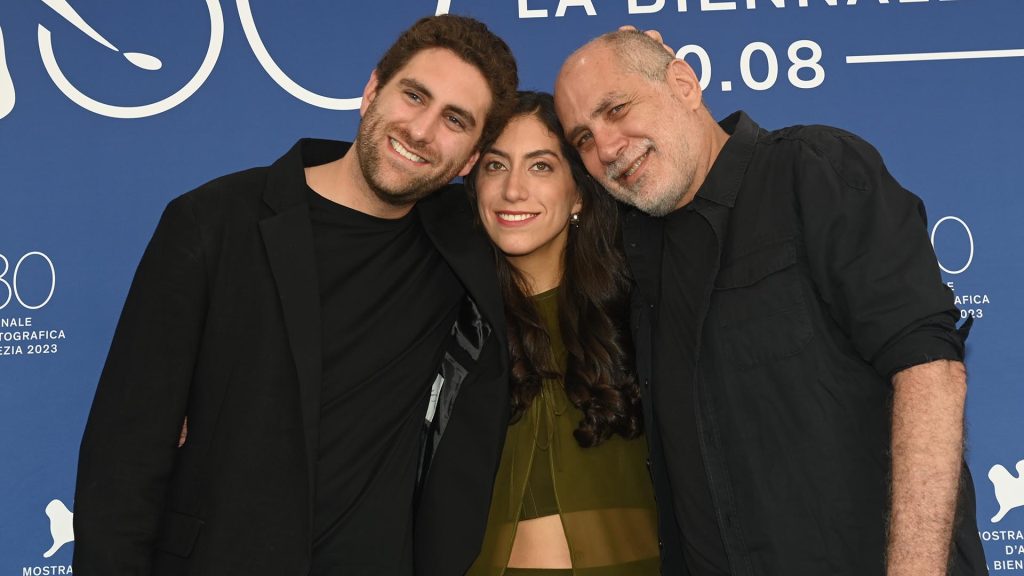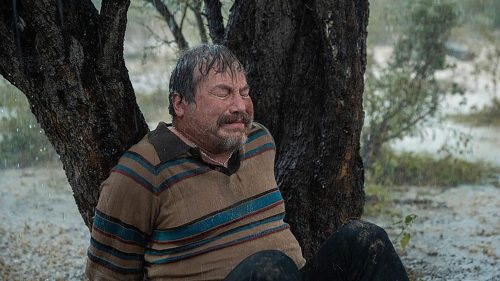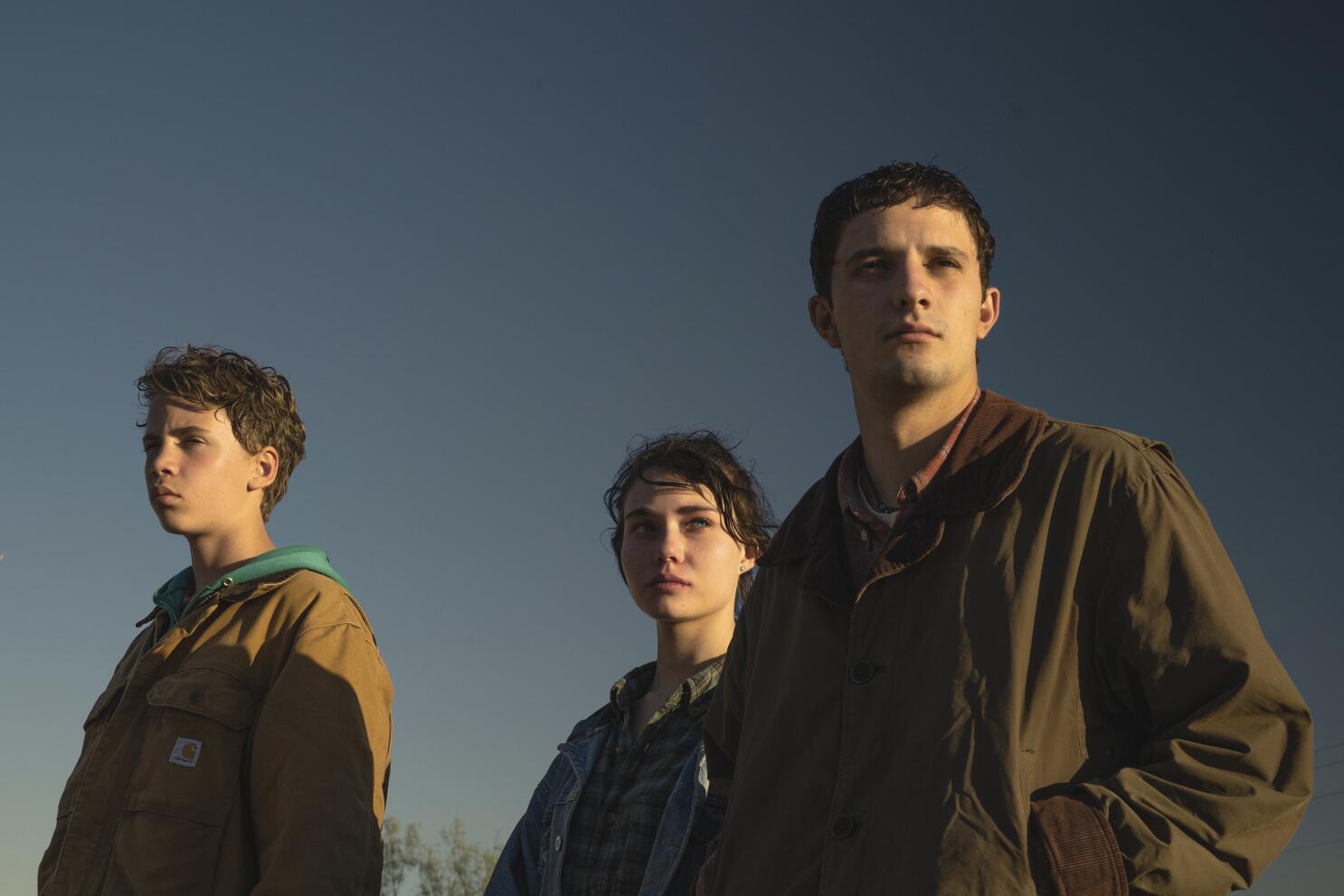
Mariana and Santiago Arriaga make their feature film debut with a screenplay written by their father, writer, screenwriter, and director Guillermo Arriaga (21 Grams, Babel, The Three Burials of Melquiades Estrada, The Burning Plain), who questions the legitimacy of the feeling of revenge and the difficulty of overcoming grief and life’s great pains.
The screenplay was written by your father in the 90s. Can you tell us the story behind this screenplay and why you decided to take on this project?
SA_At the time, our father was personally affected by a car accident, and it became a recurring theme in his work. You can see this motif in many of the movies he wrote, such as Amores Perros and 21 Grams – car accidents serve as the catalysts that set the stories in motion. It’s worth noting that Upon Open Sky is actually the first script he wrote, predating Amores Perros.
MA_ He wrote the screenplay in the 1990s, and it was originally set in the same decade. We made the decision to retain that time period. The story explores what someone would do if one of their parents were killed in a car accident, and it delves into how people can become trapped in their grief, feeling unable to move forward.

An intense road movie toward adulthood for three young individuals seeking revenge on the border between Mexico and the United States. Determined to track down and kill the man responsible for their father’s death in a car accident, two teenage brothers from the Mexican ...
Was the script intended to be passed on to you?
SA_No, initially, he wrote it for himself. He first sold the rights for the movie to a production company for fifteen years, then reacquired them around ten years ago. I came across the screenplay while I was going through boxes at home. It was one of the few documents that hadn’t been digitized. Our father encouraged me to read it, which I did, and I discovered that the story was about a brother and a sister, much like Mariana and me. That’s where it all began. We chose to set our story in Paula, in northern Mexico, a place familiar to us that we’ve been visiting since we were kids.
What challenges and what moments during the making of the film would you like to share with us?
MA_The movie itself explores challenges, and we definitely experienced the challenges during the actual production. Principal photography occurred in the desert, involving a diverse group of people and even animals. We had to contend with extreme weather conditions, from scorching heat to bitter cold. Road movies can be particularly demanding in that regard.
You cast two young boys and a girl, how was working with them?
SA_Before we began shooting, I had reservations about working with first-time actors. However, I was pleasantly surprised. They ended up teaching me a lot. We were able to establish a relaxed and genuine connection with them, allowing us to be open with our emotions. Their lack of experience meant they didn’t have set ways of doing things, and they were open to exploring different approaches.
MA_They were also incredibly disciplined. They put in the effort to study and were genuinely passionate about their work.
The film features stunning visuals and a unique setting. How did you approach the cinematography and location selection?
SA_We were in a border town between Mexico and the United States called Piedras Negras. We have many friends there, and we visit every year. It was a bit unusual to direct a film crew in a place so personally significant to us, but we managed. Our goal was to share our love for this place and our film style with everyone: the desert, the harsh lighting, the shadows… everything needed to reflect the rawness of real life. While the desert might seem like a place where nothing ever happens, in reality, it’s a hub of activity. We filmed a significant portion of the footage handheld to convey the emotions of the three main characters. We wanted to get close to them, to create a sense of directness and harshness in the storytelling.

How was it working with Ludovico Einaudi on the soundtrack?
MA_I absolutely loved working with him. He composed all the music for our film. We were huge fans, and we couldn’t believe he agreed to collaborate with us. We were thrilled with what he created. He did an incredible job.
SA_We’ve become friends now. His son Leo also worked on the movie. We managed to collaborate mostly long-distance, with us in Mexico and him in Italy. We met in person for about ten days in the studio to put the finishing touches on everything.
What do you hope audiences will take away from your film?
MA_The film is about loss and grief, a process we’ve all been through at some point. Everybody should be able to connect with it at some point.
SA_It is a very personal movie for me, it feels like being naked in front of a crowd.
Why did you choose to work together?
MA_I’m the eldest sibling, and I graduated some time before Santiago. However, at that point, I only had enough time to create the short film that I presented at Venice. Santiago was more inclined toward being a producer, and he invited me to be the director. From day one, our collaboration worked exceptionally well, and over the past seven to eight years, we’ve produced a substantial body of work, including three short films, fashion films, and experimental films. It’s quite challenging to find someone you enjoy working with to this degree. While we each have our distinct vision, we also share a significant portion of the taste and sensibility required to bring that vision to life.
Do you share roles equally?
SA_For me, directing can be quite isolating. It’s common for directors to choose a creative partner, whether it’s the producer, cinematographer, or an actor, to collaborate with on each project. Sibling pairs in cinema are not uncommon at all. I believe it works well because growing up with the same values, the same working methods, and the same perspective on life all contribute to a harmonious working relationship.
MA_We don’t have rigid divisions of tasks. We devote considerable time to script development and engage in in-depth discussions. Our objective is not for one of us to impose their vision over the other, but rather for the story to take precedence overall.
How do you feel about presenting your first feature film at the Venice Film Festival?
SA_It’s an honor and a privilege to present our film at such a prestigious festival. Mariana has previously attended with one of her short films, while it’s the first time for me. Festivals provide an opportunity to showcase our work and generate increased interest. They foster conversations around our film, which is of great importance to us.